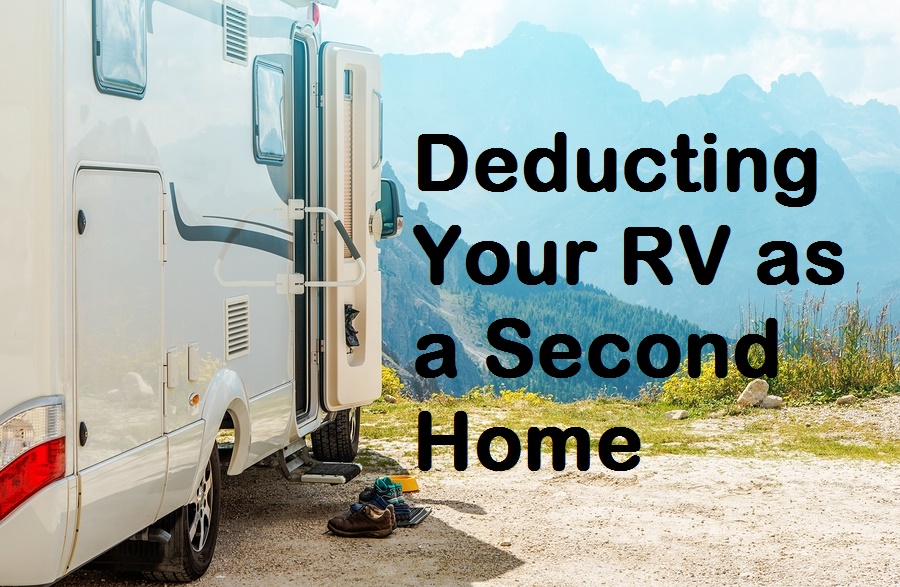
Traveling the country in your RV may be a little more affordable if you can take advantage of the tax break for the mortgage interest.
If you own a Recreational Vehicle for your own personal use, you might be able to deduct the interest you pay on your tax return!
The IRS allows you to deduct mortgage interest on two homes as long as the loan amounts do not exceed $1.1 million dollars. That’s $1.1 million on the two homes combined, not $1.1 million per home.
You may be wondering, “Does my RV really qualify as a second home?” According to the IRS, a second home must have a sleeping area, a bathroom and kitchen facilities to be considered a “home.” So if your RV has all three, then your loan interest is deductible as mortgage interest on your tax return.
Besides deducting your RV interest on your tax return, you may be wondering if there are any other tax advantages to owning an RV. The answer is: maybe!
If you live in an area that charges personal property taxes on vehicles, like they do here in Missouri, you can also deduct those taxes on your Schedule A as well.
You might even deduct expenses when you use your RV for business purposes. If that’s the case, I’ve got a whole blog post about that. See Can I Claim My RV as a Business Expense? for more information there.
But let’s say you don’t use your RV for business, but you wouldn’t mind making a little extra cash on the side. This is my favorite tax trick for RV owners: You can rent your RV out for 14 days or less and not pay tax on that income!
I know, that sounds outrageous, right? Let me explain: If you own rental property, you normally would report your income and expenses on that property and it would be subject to all of the regular tax treatment for rental property. There are tons of rules about what you can and can’t claim as a landlord and I’m not going into that here. But if you’re looking for guidance on that there’s information in IRS Publication 527.
But – if you rent out your personal dwelling unit (which, that’s what we’re claiming your RV is) for 14 days or less, the IRS does not treat that as a rental property and they don’t tax that income!
How awesome is that? When do you ever see that income is not taxable? I’m also taking this from IRS Publication 527. I know it sounds crazy, so I’m going to put the line from the IRS publication right here:

So, you can rent your RV to someone for 14 days or less, you can still take a deduction for your mortgage interest, and you don’t have to pay any tax on the money you make renting it!. How sweet is that?
RVs can be pretty expensive, but it’s nice to know there are some tax breaks out there for RV owners.

